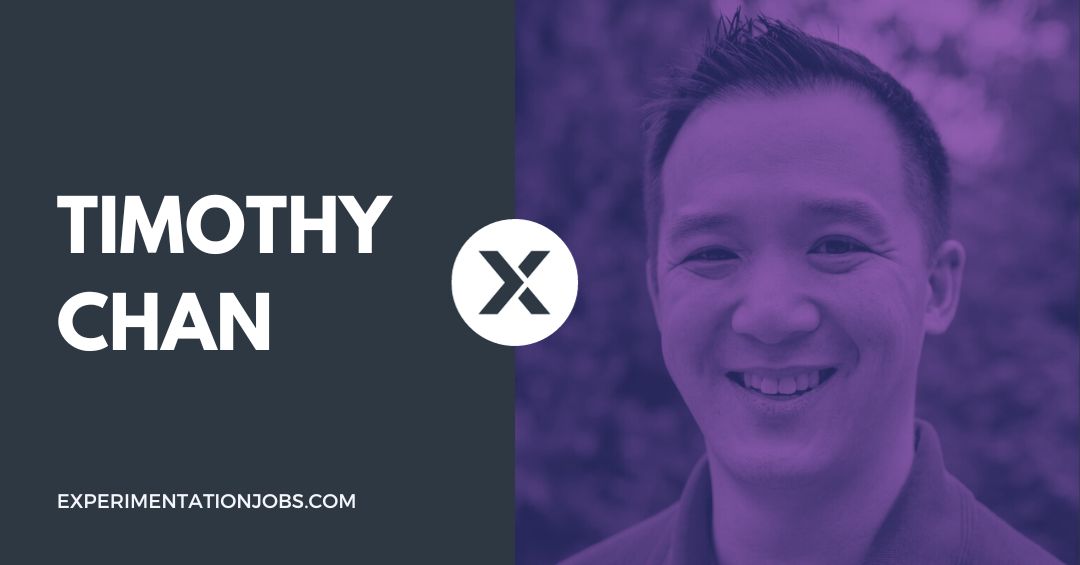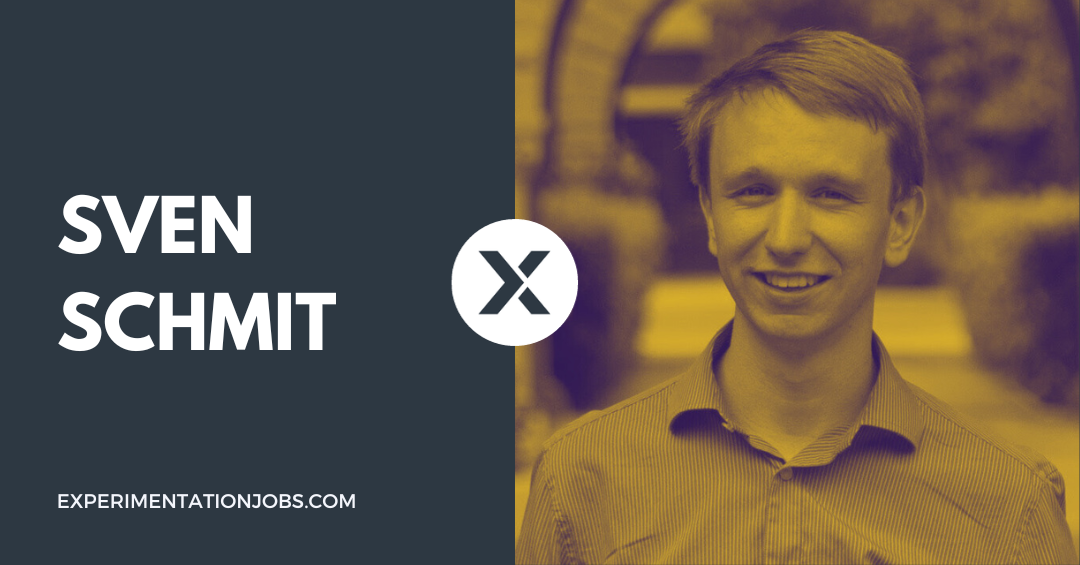The goal of this interview series is to inspire and help people to transition their career into a new or next experimentation related role. In this edition Timothy Chan shares his journey. You can follow Timothy on LinkedIn or Twitter (now X).

I currently lead Data at Statsig, a modern experimentation platform built for product teams.
Before that, I spent 5 years as a Data Scientist at Facebook, and prior to that I spent a decade designing new drugs for the biotech industry.
Education-wise, I hold a PhD in Chemistry, an MBA, and have had a long-standing interest in applying scientific rigor to making business decisions.
What is your current experimentation role and what do you do?
I was Statsig’s first data scientist, and I lead a team of data scientists and data engineers that oversee the ingestion and processing of our customer’s data to synthesize experimental results and analytical insights. Our team works closely with customers to make sure they succeed with Statsig while soliciting feedback and implementing improvements into our product.
How did you enter the experimentation space? What was your first experimentation related role?
My first true experimentation role was not in tech, and was in the field of biotechnology. We were designing drug candidates which had the potential to treat human diseases. These drugs needed to demonstrate potency while meeting a high safety bar before entering human clinical trials. This meant not only trying to understand through experiments, how diseases like Alzheimers’ may work, but also trying to design the drug that would block the disease, while ensuring the drug was safe. It’s fair to say this was mostly a trial-and-error process, which is not unlike how we design digital products today.
How did you start to learn experimentation?
My first “tech” experimentation role was working at Facebook on the gaming team. This was back in 2016 when Facebook had a multi-billion dollar web games business, and was hunting for new gaming initiatives to drive engagement on Facebook (gaming is a big interest group). Experimentation was second-nature at Facebook; everyone knew how to do it (Engineers, PMs, not just data scientists). This forced me to level up, but also let me focus on bigger problems like advanced experimental design, deeper interpretations and insights, and how what we were doing fit into the team’s top-level strategy.
How do you apply experimentation in your personal life? (what are you tinkering with or always optimizing?)
My hobby is cooking, and perhaps it’s my chemistry training, but I carefully (or sometimes boldly) tweak recipes to optimize the outcome. I like to optimize for simplicity: what are the minimal set of ingredients and steps that can mostly reproduce a dish? But I also try things like how low can I reduce the milk fat % but still have an ice cream that feels creamy? I’m also big into smoking meats and this requires a lot of experimentation with time and temperature. My family is not a fan of my experimentation.
What are you currently doing to keep up with the ever-changing industry?
That’s a key part of my job. Our customers constantly challenge us with their unique experimentation problems and rely on us to help them out. We like to focus on pragmatic solutions for real problems. This is sometimes a statistical challenge, but can also be a human problem. For example, how do I convince leadership we should do more experiments? We try to showcase experimentation and want it to flourish within a company.
What recommendations would you give to someone who is looking to join the experimentation industry and get their first full-time position?
I view this very much from a data scientist perspective, and I view experimentation as the most important tool in the product analytics toolbox. It is the best measure of causality we have, and setting up experiments to test critical hypothesis is the best way to learn how your product interacts with users.
You switched from Facebook to Statsig almost 3 years ago. How did you experience this change? What made you decide to switch from an established company to a startup?
This is easy. Vijaye Raji (CEO and founder of Statsig) asked me if I wanted to join and I couldn’t say no. I had worked with him before at Facebook and had a lot of respect for his leadership abilities, empathy, and track record. But perhaps more importantly, the handful of engineers who were joining him were all of my favorite Facebook engineers. Folks who were ridiculously talented and had an uncanny ability to just get stuff done. Vijaye was assembling a dream team and it would have been crazy to turn down this offer.
Which developments in experimentation excite you? How do you see the field changing in the next 5 to 10 years?
I’m excited to see experimentation lead the charge on data-driven insights and decision-making into product development. While experimentation is well-established in marketing, and is starting to permeate tech products, what excites me most is to see other industries adopting experimentation. Industries like brick-and-mortar retail, human resources, supply chain logistics…etc. Decision-making in the larger business world is dominated by shiny presentations, and well-sounding arguments built only on conjectures. I can’t wait to see that change.
Is there anything people reading this can help you with? Or any parting words?
Follow me on Linkedin and engage me with ideas, challenges, and problems. Experimentation is expanding way beyond red/green button tests and our collective experiences are important to share.
Which other experimenters would you love to read an interview by?
These are all data scientists in tech:
- Eric Weber
- Bertil Hatt
- Brent Cohn
- Benjamin Skrainka
Thank you Timothy for sharing your journey with the community.



